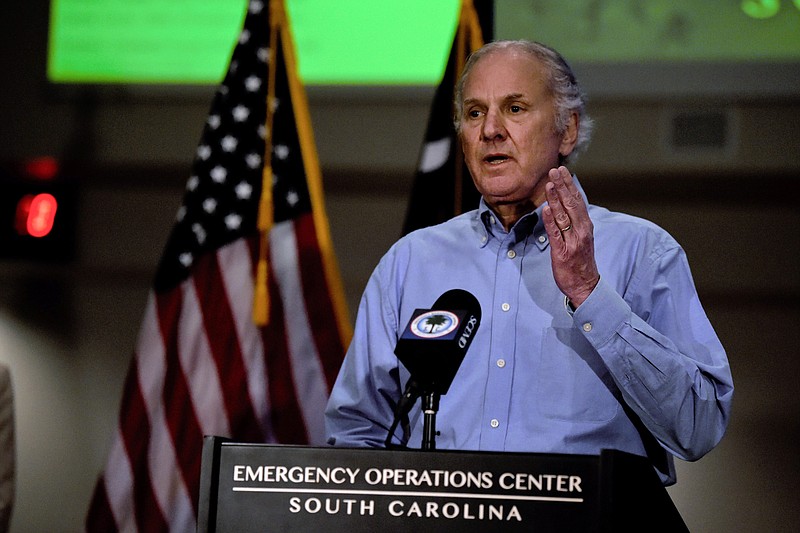COLUMBIA, S.C. (AP) - Gov. Henry McMaster has directed South Carolina's health department to begin publicly disclosing confirmed COVID-19 cases by ZIP code, a level of information specificity the agency had previously said was not necessary in efforts to temper the outbreak.
"We want the people to know what they're facing," McMaster said during a media briefing on Friday, of the information that the Department of Health and Environmental Control began posting online that afternoon.
Scrutinized over information releases concerning the spread of the virus, state health officials have expressed hesitation at releasing ZIP code-level data on known infections, as opposed to the county-level data they say is an industry standard.
In a lengthy interview Wednesday with The Associated Press, state epidemiologist Linda Bell called ZIP code-level releases a "distraction" that could violate patient privacy, saying the release of too much information could lead to the accidental identification of a patient, as she said happened in the pandemic's early days.
Bell said the best way to mollify the outbreak is for all South Carolinians to act as if anyone with whom they come into contact may be infected, rather than merely avoiding "hot spot" areas. She also added her agency would continue to disseminate information in a way she felt would best safeguard the public.
"What would people do differently if we give more granular information, when what is needed is the measures that we have recommended all along, for the community as a whole?" Bell told the AP Wednesday. "And that's when we don't release additional information - when it is of no additional benefit to protect the public health."
At Friday's briefing, asked about the governor's order, Bell reiterated those comments, noting that the figures would be good tools for health officials but shouldn't change public interactions.
"That's good information for the health department to assess, but it should not change the behavior of individuals in the community," Bell said.
South Carolina had reported more than 1,700 COVID-19 cases statewide as of Friday, with at least one case reported in every county and 34 total deaths.
Health officials have said they would make more granular case location information available to first responders, announcing the creation of a statewide database of addresses of known positive COVID-19 cases where first responders could check to see if a home to which they're being called has a resident who's tested positive for the new coronavirus.
Also on Friday, Greenville City Council passed a $100 fine for any essential business still open that does not try to enforce social distancing in its store. To avoid the $100 fine, businesses will need to measure off 6 feet (2 meters) at checkouts, have sanitizer available, install protective barriers at checkouts, allow employees to wear protective masks and allow customers to phone in orders and pick up curbside, according to the ordinance.
On Friday, as Alabama's governor took action that made South Carolina the only state in the region without a formal "stay at home" order, McMaster seemed to indicate that he may issue one at some point but said that, for now, he favors taking a "precise, deliberate approach, according to our plan."
"When and if it comes times to make any order that has not been made, that may not have even been thought of yet, depending on the course of this virus, we will make that order," he said. "But until then, we are urging people to follow the advice of the professionals: stay home, be careful."
___
AP writer Jeffrey Collins contributed to this report.
